Fiction Reviews
Cleaver reviewers present the most exciting literary work from around the globe. We specialize in American independent press releases but also vital work in translation that’s all too often overlooked by American readers.
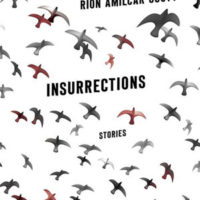
INSURRECTIONS, stories by Rion Amilcar Scott, reviewed by William Morris
The stories in Rion Amilcar Scott’s debut collection, Insurrections, are set in Cross River, Maryland, a small East Coast city you won’t find on any map. The city itself is a work of fiction, but the lives of its inhabitants feel startlingly real. Among the Cross Riverians—or Riverbabies, depending on who you ask—included in this collection are a suicidal father, an old man known as the slapsmith, and a pair of brothers separated by the constantly flooding Cross River, which gives the city its name and divides it into the affluent Northside and impoverished Southside ...
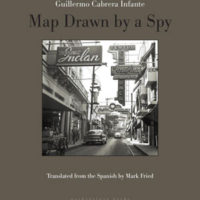
MAP DRAWN BY A SPY, a novel by Guillermo Cabrera Infante, reviewed by reviewed by Jacqueline Kharouf
Posthumous novels are both a joy and, sometimes, a let-down. Left behind by an author whose polished work stands as a testament to the full capacity of his or her mind, the words on the page surface at first like an extension from the past. This one last bit of evidence left for us to find. The posthumous novel should be examined and praised as a rare object—hidden in a vault, locked in an old suitcase, tucked into an envelope—and given a small bit of license for being not quite the full body of work its author intended ...
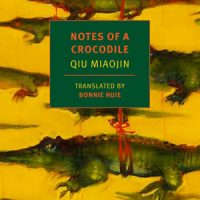
NOTES OF A CROCODILE, a novel by Qiu Miaojin, reviewed by Ryan K. Strader
Lazi argues that mapping secrets and pain can be a matter of life and death, and Qiu’s suicide seems to attest to that. Considering the stresses of our present age, where identities and ideologies are masking and unmasking, the intrapersonal mapping of identity is even more significant for artists that would influence culture. That might be another way that Notes of a Crocodile is oddly predictive; or, its tendency to speak so clearly to our global present might mean that Lazi—and Qiu’s—struggle for self-identification is timeless. In either case, Notes of a Crocodile is an important addition to literature that ...
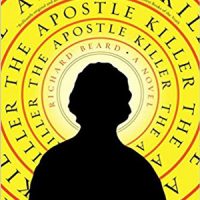
The Apostle Killer, a novel by Richard Beard, reviewed by Ansel Shipley
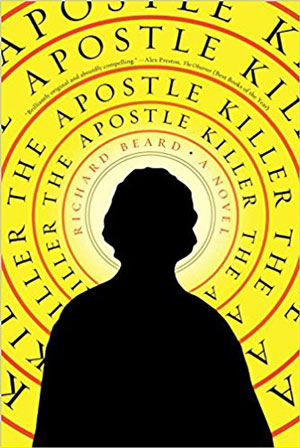 The Apostle Killer by Richard Beard Melville House, 331 pages reviewed by Ansel Shipley Jesus is the enemy in The Apostle Killer: a socialist anti-establishment religious extremist. In the novel, Richard Beard creates a world that melds both the superstitious past, in which a self-described Messiah could amass a frighteningly large following, and the skeptical present that labels such men religious extremists and terrorists. “With Jesus, the trickery is without end. If he feigned his death he was extending a pattern that started with the miracles because what you see, with Jesus, is rarely what you get.” The protagonist, ...
The Apostle Killer by Richard Beard Melville House, 331 pages reviewed by Ansel Shipley Jesus is the enemy in The Apostle Killer: a socialist anti-establishment religious extremist. In the novel, Richard Beard creates a world that melds both the superstitious past, in which a self-described Messiah could amass a frighteningly large following, and the skeptical present that labels such men religious extremists and terrorists. “With Jesus, the trickery is without end. If he feigned his death he was extending a pattern that started with the miracles because what you see, with Jesus, is rarely what you get.” The protagonist, ...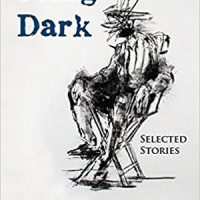
GOING DARK, stories by Dennis Must, reviewed by Ashlee Paxton-Turner
An aging and dying actor, a blank slate, a forgotten man. This is the first narrator the reader meets in Dennis Must’s 2016 collection of seventeen short stories, Going Dark. The narrator of the title story, though a nobody, shares much in common with the other narrators and characters of the stories that follow in the collection. Indeed, throughout the collection, Must’s characters wrestle with important questions about identity, sanity, and morality, as their lives are colored by the particular details of their lives: their cars, the music they listen to, and their work. . The reason the first narrator, ...
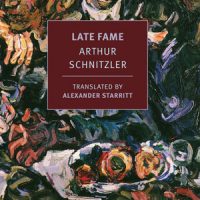
LATE FAME, a novella by Arthur Schnitzler, reviewed by Robert Sorrell
Herr Eduard Saxberger lives in a pleasant apartment overlooking the Vienna Woods. Each night after spending the day in his civil service office, he eats at his usual restaurant where he interacts little with his companions beyond small talk and basic requests, and goes for a walk. His life is stable, if a bit empty. But one day a young man named Wolfgang Meier appears at the door, clutching a copy of the Wanderings, poems by Eduard Saxberger, and the somewhat bumbling, bourgeois civil servant is thrown back into a past he hardly remembers ...
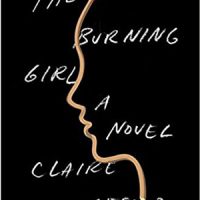
THE BURNING GIRL, a novel by Claire Messud, reviewed by Amanda Klute
Hindsight never fails in providing a comprehensive scope of recently-felt chaos—this is the key narrative tool Claire Messud employs in her intimate coming-of-age novel, The Burning Girl. The Burning Girl offers deep insight into a seemingly minuscule and ordinary loss of two young Massachusetts girls, and quietly probes us to ponder the necessity, ridicule, and unfairness that results from a society prizing itself on the lack of innocence as means of survival ...
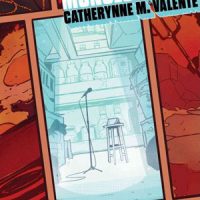
THE REFRIGERATOR MONOLOGUES, a novel by Catherynne M. Valente, reviewed by Ansel Shipley
Catherynne M. Valente’s most recent novel, The Refrigerator Monologues, exists in an odd space between novel and what could be called a pseudo-parable. Valente’s six protagonists and her interconnected narratives clearly parallel famous female comic book characters and their narrative arcs. Each of them, in fact, exhibits numerous traits that link her to a specific DC or Marvel property, ensuring that nothing is lost on the reader ...
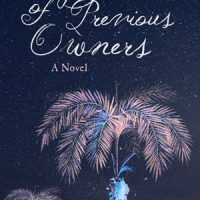
FINGERPRINTS OF PREVIOUS OWNERS, a novel by Rebecca Entel, reviewed by Elizabeth Mosier
“The narrator of this book is a Caribbean woman. You may have noticed that the writer of this book is not,” Rebecca Entel notes in a preface to Fingerprints of Previous Owners, her novel set at a resort built on the nettle-choked ruins of a former slave plantation. Alluding to her research and credentials as a scholar of nineteenth-century American literature, Entel does more than attempt to deflect criticism for cultural appropriation. She declares her investment in this story, as well as her intention to free her characters from a colonial narrative frame ...
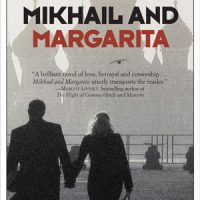
MIKHAIL AND MARGARITA, a novel by Julie Lekstrom Himes, reviewed by Ryan K. Strader
Julie Lekstrom Himes’ novel, Mikhail and Margarita, imagines the love affair that might have inspired The Master and Margarita. This is Himes’ first novel, following the publication of several short stories and essays. Himes is a physician in Massachusetts; interestingly, Bulgakov was also a physician. In an interview with the literary website Eye 94, Himes describes reading Bulgakov’s collection A Country Doctor’s Notebook (reflections on his early years as a doctor) and identifying with “the fear and regret and self-questioning” of a young doctor. Identifying with Bulgakov’s “voice” as a doctor encouraged Himes to try writing from his perspective, to ...
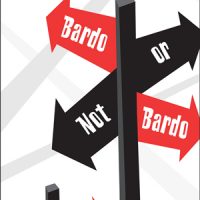
BARDO OR NOT BARDO, a novel by Antoine Volodine, reviewed by Amada Klute
Take the existential universe of Jean-Paul Sartre and pull his pants down around his ankles—this is the paradoxical narrative met with in French comedic novelist Antoine Volodine’s Bardo or Not Bardo. Volodine’s blunt, absurdist style illustrates a marriage between the profound and the comedic, using humor as a weapon to further investigate humanity’s most unanswerable questions ...

EXPOSURE, short stories by Katy Resch George, reviewed by Rebecca Entel
The cover of Exposure, a short story collection by Katy Resch George, hints at the kind of stories you’ll find inside. The photograph of a topless woman on a beach with her arms tugged behind her is both intimate and distant, the woman exposed but also obscured by the translucent type of the title and, in the repeated image, wrapped around the spine of the book, also underneath type. The woman’s expression is blocked by George’s name on the spine and, on the front cover, hard to make out. Is she scowling at the camera? Pondering something beyond it? Seductive, ...

THE GERMAN GIRL, a novel by Armando Lucas Correa, reviewed by Kellie Carle
The German Girl permits readers to enter the minds of two 12-year-old girls as their lives are shaped by the tragedies of the SS St. Louis and 9/11. Correa expertly combines fact with fiction, as he constructs and then deconstructs the lives of two young girls. He also illustrates the importance a family’s history and the need to pass down history through the generations. The story of the contemporary girl, Anna, is imbedded (as is her name) in Hannah’s and though this is the conceit of the novel, it is also a weakness ...
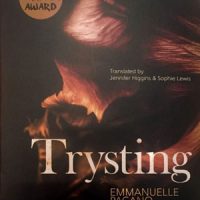
TRYSTING, fiction by Emmanuelle Pagano, reviewed by Rachel R. Taube
Emmanuelle Pagano’s Trysting is an intimate romance among hundreds. This book of fictional fragments, each in the first person, features character after character—most of indeterminate gender, age, and history—falling in and out of love. The self-contained pieces range from one sentence meditations to several hundred word flash fictions. The shortest of these could be writing prompts, while others read as prose poems. Reading Trysting can, in fact, be like reading a book of poetry, and it benefits from slow, thoughtful study. You could linger over any one piece, reread it and taste the rhythm, the carefully chosen words ...
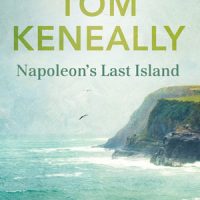
NAPOLEON’S LAST ISLAND, a novel by Thomas Keneally, reviewed by Nokware Knight
Based on the synopsis (conquered conqueror stuck on island hesitantly befriends by young native girl) and artwork (an ocean crashing into the bottom of seaside cliffs) on the book jacket, I expected in part to read the account of an aged, brooding, and isolated man pacing away his final days on an isolated rock, sometimes tolerant of, sometimes avoidant, sometimes thankful for his friendship with a young girl who lives there. For better, and for worse, I found something else ...
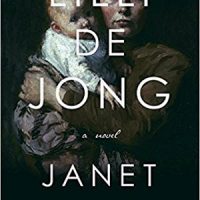
LILLI DE JONG, a novel by Janet Benton, reviewed by Joanne Green
“When I write, I forget that I don’t belong to myself.” So observes Lilli de Jong, whose journal entries narrate Janet Benton’s impressive debut novel, set in the 1880s. Lilli is as spirited and determined as Jane Eyre, as sensible as Elinor Dashwood, and as downtrodden as Little Nell. Yet on the subjects of reproductive rights, affordable day care, and the cost of motherhood for women the book speaks directly to readers, today ...
FAMILY LEXICON, a novel by Natalia Ginzburg, translated by Jenny McPhee, reviewed by Robert Sorrell
Now in a new translation by Jenny McPhee (and with a new English title), Family Lexicon is Natalia Ginzburg’s Strega Prize winning memoir/novel of life in Italy before, during, and after World War II, Lessico famigliare, first published in 1963. Ginzburg is known mainly in this country for being a “writer’s writer,” a phrase which is often used to compensate for an author’s lack of fame. But in Ginzburg’s case, perhaps there’s a bit more to it; her essays are often assigned on writing workshop syllabi alongside favorites like Joan Didion, James Baldwin, and George Orwell. A quick Internet search ...
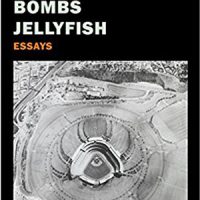
TYPEWRITERS, BOMBS, JELLYFISH: ESSAYS by Tom McCarthy reviewed by William Morris
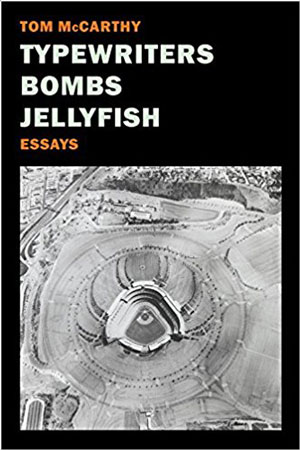 TYPEWRITERS, BOMBS, JELLYFISH: ESSAYS by Tom McCarthy New York Review Books, 288 Pages reviewed by William Morris I am writing this on Monday May 8, 2017, the night before Typewriters, Bombs, Jellyfish: Essays, a collection of the work of British writer Tom McCarthy, will be published. I checked my watch to be sure of the date, and found that it’s a day off. It claims today is the 7th. This small discrepancy is hardly worth noting, except as it pertains to McCarthy’s obsessive treatment of time in these essays. Time is an illusive business, a difficult thing to pin ...
TYPEWRITERS, BOMBS, JELLYFISH: ESSAYS by Tom McCarthy New York Review Books, 288 Pages reviewed by William Morris I am writing this on Monday May 8, 2017, the night before Typewriters, Bombs, Jellyfish: Essays, a collection of the work of British writer Tom McCarthy, will be published. I checked my watch to be sure of the date, and found that it’s a day off. It claims today is the 7th. This small discrepancy is hardly worth noting, except as it pertains to McCarthy’s obsessive treatment of time in these essays. Time is an illusive business, a difficult thing to pin ...
ATLANTIC HOTEL, a novel by João Gilberto Noll, reviewed by Robert Sorrell
“Love. Call me Love, the Word Incarnate.” This is the closest that readers get to a name for the protagonist and narrator of João Gilberto Noll’s strange little book, Atlantic Hotel, recently translated into English by Adam Morris. The novel is set in Brazil in the 1980s, and over the course of the book, the unnamed narrator embarks on a beguiling and pointless quest through the country. At different points he will seem to be—or perhaps will be—an actor, a priest, an alcoholic, an invalid. Along the way, Noll will shade his experiences with touches of Don Quixote and Odysseus, ...

THE LONG DRY, a novel by Cynan Jones, reviewed by Melanie Erspamer
Ultimately this is a beautiful little novel that leaves the reader reeling with the powerful emotions it manages to render in such a short space and with such sparse language. The simple storyline also gives leave for musings over possible symbolism. For example, what does the cow represent? Of course it could represent nothing in particular, simply a lost cow, one of the millions of small reasons we give ourselves to keep living purposefully each day ...
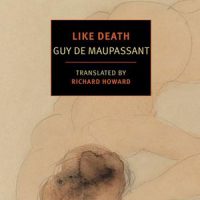
LIKE DEATH, a novel by Guy de Maupassant, reviewed by Derek M. Brown
With Like Death, Richard Howard—poet, critic, essayist, and professor at Columbia University—offers a rendering of Maupassant’s Fort comme la mort that, I can only presume, retains all of the lyrical richness of the original, published in 1889. It also offers startling insight into the extent of Maupassant’s influence, which can be found in some of the 20th century’s most seminal works ...
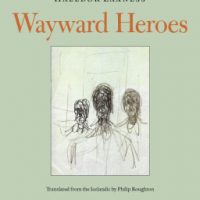
WAYWARD HEROES, a novel by Halldór Laxness, reviewed by Tyson Duffy
Certain great writers fade from the American memory like condensation from a windowpane. The Icelandic novelist Halldor Laxness—he was once all the rage here—is one. He was considered something of an upstart, a genius, a social novelist, a fellow traveler of Upton Sinclair and Bertolt Brecht, and he often journeyed between Europe and America. A Marxist-Stalinist who was very critical of America, he was once important enough to attract the personal ire of J. Edgar Hoover at the FBI, who worked hard to impoverish Laxness by attempting to confiscate profits from his U.S. book sales, which were considerable ...

SHOT-BLUE, a novel by Jesse Ruddock, reviewed by Robert Sorrell
Shot Blue is written in a style that somehow combines an easy-spoken blue collar minimalism with wordplay and lyricism. The oblique, hidden emotions of the characters are balanced in part by the ingenuity and playfulness of Ruddock’s language ...
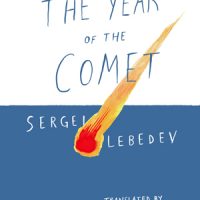
THE YEAR OF THE COMET, a novel by Sergei Lebedev, reviewed by Christina Tang-Bernas
The unnamed narrator of The Year of the Comet is born the moment an earthquake strikes Moscow. “The earthquake was my first impression of being: the world was revealed to me as instability, shakiness, the wobbliness of foundations.” Therefore, he observes, “My feelings, my ability to feel, were fashioned by that underground blow. I had trouble understanding anything to do with stability, immutability, and firmness, even though I wanted those states I could not achieve; disharmony was closer and more understandable than harmony.” ...
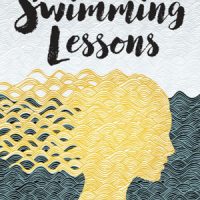
SWIMMING LESSONS, a novel by Claire Fuller, reviewed by Elizabeth Mosier
“A book becomes a living thing only when it interacts with a reader,” says writer Gil Coleman, the rogue central character of Claire Fuller’s Swimming Lessons. When he tells a bookshop assistant that “first editions don’t matter,” he seems to argue that access is more important than ownership, that a book’s content is more valuable than the object enclosing the text. But the impulse behind the sentiment is hardly democratic; his words cast light on his unequal marriage to Ingrid, a student he impregnates, derailing her education. Infamous for a single work (the lurid and presumably autobiographical A Man of ...
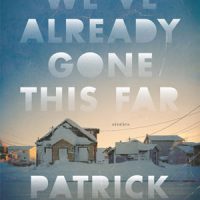
WE’VE ALREADY GONE THIS FAR, stories by Patrick Dacey, reviewed by Tyson Duffy
In Patrick Dacey’s first story collection, We’ve Already Gone This Far, available now in hardback and due out from Picador in paperback June 27, we find out what happens when we yield to life’s despiritualized strangeness in the twenty-first century’s overweening atmosphere of hogwild commercialism and ideological rigidity. (His first novel, The Outer Cape (Henry Holt & Co), will debut in hardback on the same date.) Dacey seems to be an interesting character himself in this regard, a bespoke and downtrodden seeker of his own soul adrift in corporatized America. The descriptions he’s given in interviews of a difficult youth ...
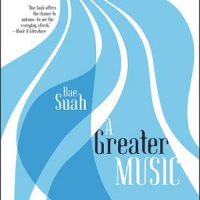
A GREATER MUSIC, a novel by Bae Suah, translated by Deborah Smith and reviewed by Justin Goodman
Bae Suah’s newest English-translated work, A Greater Music, describes the Austrian composer Franz Schubert as “a short, fat, shy myopic.” As brutal as this description is of a man who unhappily died before his 32nd year, it seems altogether different in tone when used to describe Bae’s novel itself. Filled with observatory indifference and an almost disembodied airiness, the novel comes across particularly as commentary, and as particularly rebellious. But what’s striking about A Greater Music is that it treats the work of Schubert above the man, treats the novel above the social, giving grandeur to otherwise short, fat, shy ...
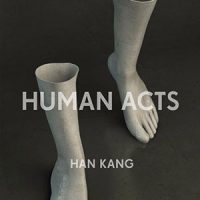
HUMAN ACTS, a novel by Han Kang, translated by Deborah Smith, reviewed by William Morris
First published in South Korea in 2014, Han Kang’s new novel Human Acts is now available for the first time in the United States. American readers first encountered Kang in 2016, with the translation of her 2007 novel The Vegetarian. This strange, dark, poetic novel, about a woman who decides to stop eating meat after having a horrific nightmare, was met with great acclaim. Translated by Deborah Smith, The Vegetarian went on to win the 2016 Man Booker International Prize. While Human Acts is a rich, powerful novel in its own right, and should be read independently of The Vegetarian, ...

YEAR OF THE RAT, a novel by Marc Anthony Richardson, reviewed by Matthew Jakubowski
Marc Anthony Richardson is an artist from Philadelphia and this compact book, his first, which won the Ronald Sukenick Prize for Innovation Fiction, makes for a fine addition to the recent history of experimental prose by writers with ties to Philadelphia—from the late Fran Ross (whose 1974 novel, Oreo, was recently re-issued) to contemporaries like Samuel R. Delany, Sabrina Vourvoulias, Hilary Plum, Caren Beilin, and the West Philadelphia sci-fi collective Metropolarity ...
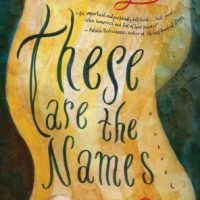
THESE ARE THE NAMES, a novel by Tommy Wieringa reviewed by Robert Sorrell
The hero–or perhaps I should say anti-hero–of Dutch author Tommy Wieringa’s new novel, These Are the Names is a 53-year-old police chief named Pontus Beg. Beg lives in a fictional border town called Michailopol, a city ailing in post-Soviet corruption and aimless malaise. Beg has “set up his life as a barrier against pain and discomfort,” Wieringa writes. “Suppressing chaos: washing dishes, maintaining order. What did it matter that one day looked so much like the other that he could not recall a single one; he keeps to the middle equidistant from both bottom and top.” ...

AND WIND WILL WASH AWAY, a novel by Jordan A. Rothacker, reviewed by William Morris
Detective Jonathan Wind is not a wisecracking, hardboiled investigator in the tradition of Philip Marlowe, or a hyper-observant sleuth like Sherlock Holmes. Rather, Wind uses his almost encyclopedic knowledge to investigate crimes for the Atlanta Police Department. When he’s not on a case, the protagonist of Jordan A. Rothacker’s And Wind Will Wash Away splits his time between Monica, his devout Catholic girlfriend, and his secret mistress, Flora, a goddess-worshipping sex worker ...
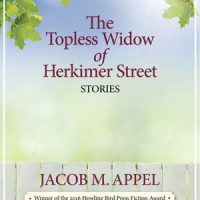
THE TOPLESS WIDOW OF HERKIMER STREET, stories by Jacob M. Appel, reviewed by Odette Moolten
The Topless Widow of Herkimer Street, winner of the 2016 Howling Bird Press fiction prize, is an honest, funny, and sometimes un-apologetically dark collection of short stories.. Its author, Jacob M. Appel (Miracles and Conundrums of the Secondary Planets (2015), The Man Who Wouldn’t Stand Up (2012)) can easily be described as a modern renaissance man: in addition to his writing, he is also a bioethicist, attorney, and a physician. These professional fields come into play in many of the stories included in this collection, often to highlight or expose ethical conflicts his characters must face ...

THE YOUNG BRIDE, a novel by Alessandro Baricco, reviewed by Melanie Erspamer
The author of the novel, Alessandro Baricco, a popular Italian writer, director and performer, suggests that a world based around logic and sense ultimately will stifle us. It is in fact, what the narrator of the main story, the “author” (easy to conflate with Baricco, though we shouldn’t), desires to escape from. He does so by running to fantasy: a place gleefully empty of logic or sense. However this is not to suggest that it is a place of chaos or anarchy—in fact quite the opposite. Fantasy rather offers refuge from the chaos of everyday life through its own simple ...
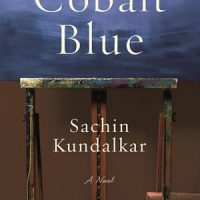
COBALT BLUE, a novel by Sachin Kundalkar, reviewed by Nokware Knight
Tanay is a young, closeted queer man trying to work through an internal rut by living for the company of and validation from others. As Tanay befriends an out-of-towner renting a room in his family’s home, he finds himself in awe of the Guest’s ability to thrive in solitude, to fully embrace his mood of the moment, to being in a class of “men who lived their own idiosyncrasies” (the house guest is unnamed in the novel, but for the sake of clarity in this review I call him the Guest). It’s enough to gradually wrestle Tanay out of his ...
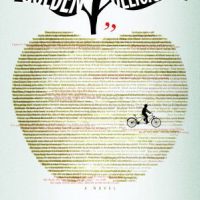
GOLDEN DELICIOUS, a novel by Christopher Boucher, reviewed by Claire Rudy Foster
Golden Delicious follows a fairly straight plot structure. (Thank God.) The novel’s a story of a family in Appleseed, Massachusetts, the kind of small town where apple-cheeked children frisk beside white picket fences, waving baseballs over the heads of leaping, barking terriers. It is, for lack of a better word, a wholesome place, a village that knows its own story too well to outgrow its roots. Here, history is literal. Sentences sprout from the soil, locals bear unusual names, and mothers practice their flight techniques. But under it, this is a simple story. The narrator, after his family takes to ...

Come As You Are, a novel by Christine Weiser, reviewed by Claire Rudy Foster
Is there anything more disappointing than waking up in your mid-30s and wondering what the hell happened? Suddenly, you have a family, children, a mortgage, and a job that, despite your best efforts, is starting to define you. Your sensible car is in perfect order. You have a retirement account. Where’s the punk you used to be? What happened to all those bad decisions you made in your 20s? ...

EASIEST IF I HAD A GUN, short stories by Michael Gerhard Martin, reviewed by Rosie Huf
It wasn’t Michael Gerhard Martin’s stories in the collection Easiest If I Had a Gun that wooed me as much as it was his crisp, visceral writing. His narrative constructs are alluring and beg to be unpacked, analyzed, and savored. Without apparent ego or bias, he transcribes the thoughts, memories, and dialogue of his characters as they struggle to navigate the mundane obstacles associated with living as lower middle-class, white Americans. This theme—the white man’s struggle—is not new. Yet, Martin manages to bring to the subject a fresh voice and a macabre sense of social conscience ...
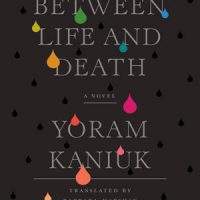
BETWEEN LIFE AND DEATH, a novel by Yoram Kaniuk, reviewed by David Grandouiller
Yoram Kaniuk, an Israeli novelist who died in 2013, was the kind of man who tells jokes as he's dying in the hospital, even when he has no voice, when there's a respirator thrust through an incision in his chest. His humor is at times bitter, biting like Sholem Aleichem's pogrom narratives, descending into sullen anti-prayers: “cancer, like Hitler...is a messenger of the Lord.” In this respect, Kaniuk's Between Life and Death, published this year in English, probably most closely resembles Christopher Hitchens' Mortality. A sense of the meaninglessness in so much of life, of banality in death, pervades both ...
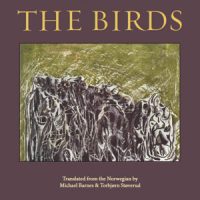
THE BIRDS, a novel by Tarjei Vesaas, reviewed by Melanie Erspamer
Had The Birds been written from the perspective of another character other than Mattis, a dim-witted near forty-year old, it probably would have had a different title—The Lumberjack, maybe, or some other word that references one of the major events in the novel. But that’s the point: the perspective, usually in third person but sometimes slipping into first person, is Mattis’ and thus the story is his. Although often the characters in a book share the same events, they do not share the same story; for that, as Norwegian author Tarjei Vesaas shows brilliantly in this moving novel, depends on ...
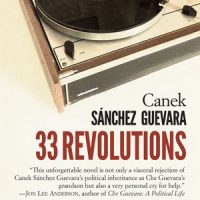
33 REVOLUTIONS, a novel by Canek Sánchez Guevara, reviewed by Nathaniel Popkin
Canek Sánchez Guevara’s 33 Revolutions is a prayer of a novel with a single liturgical refrain and a retort (of a kind) to the giddiness emitting from the American-Cuban travelsphere. Not since Reinaldo Arenas has a Cuban literary voice arrived on American shores with such beaten madness, and sense of personal desperation. Sánchez Guevara, who died last year at age 40, was the eldest grandson of revolutionary Ernesto “Che” Guevara. His mother, Hilda Guevara Gaesa, was Che’s oldest child; Hilda’s mother (also Hilda) introduced Che to the Castro brothers in the mid-1950s. (It’s worth remembering that the American literary public ...

THE SEVEN MADMEN, a novel by Roberto Arlt reviewed by Jacqueline Kharouf
Madness is synonymous with insanity, but to be “mad” one doesn’t necessarily go crazy. One might be mad at society, a world of socially imposed rules that stifle the imagination or measure people according to economic usefulness. Rage against a world in which a multicultural, mostly impoverished majority are controlled by a corrupt, wealthy minority could be defined as a type of “madness.” In such a state, the individual’s warped mind drives him to fantastical plans for revenge, deep wells of anguish or panic, brothel-filled nights, petty crimes, thoughts of suicide, kidnapping, and imagined love affairs ...
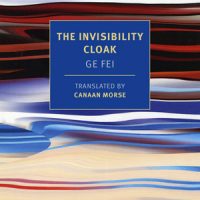
THE INVISIBILITY CLOAK, a novel by Ge Fei, reviewed by William Morris
The narrator and protagonist of The Invisibility Cloak—the first English translation of a novel by acclaimed Chinese writer Ge Fei—is not an inherently likeable person. Cui sees intellectuals as mainly full of nonsense. He is also quick to play the victim, blaming those around him for his misfortunes. But it would be difficult to read this novel without at times empathizing with the narrator. His wife left him, he’s living in his sister’s crummy apartment, and the only real solace he finds is in sitting in the dark, listening to Beethoven on CD ...
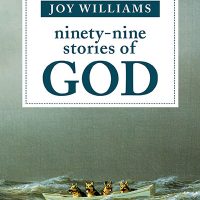
NINETY-NINE STORIES OF GOD by Joy Williams reviewed by Kathryn Kulpa
In Ninety-Nine Stories of God, Williams has pared away all but the essentials. These very short prose pieces are novels written in miniature, pocket epics and cryptic parables etched on the head of a pin. Most are not more than two pages, some are a single paragraph, and a few are just one or two sentences: simple, even stark, yet weighted. The sixty-first story, “Museum,” for example, is one rueful sentence: “We were not interested the way we thought we would be interested.” ...
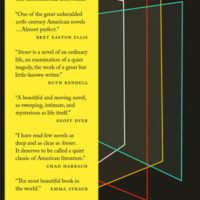
STONER, a novel by John Williams, 50th Anniversary Edition, reviewed by Michelle E. Crouch
This edition of the 1965 novel Stoner arrived with a gold band around the front cover printed with exuberant blurbs that call it “as sweeping, intimate, and mysterious as life itself” and “the most beautiful book in the world.” Such loud praise seems almost at odds with a quiet, serious book; it’s the sort of praise that its hero, William Stoner, neither receives nor (for more than a fleeting moment) desires. Following Stoner from birth to death, the novel presents a seemingly unexceptional life as a subject worthy of the closest examination ...
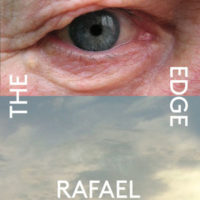
ON THE EDGE, a novel by Rafael Chirbes, reviewed by David Grandouiller
Regarding the difficulty of starting a novel, Umberto Eco writes, in the appendices to The Name of the Rose, “...there is an Indian proverb that goes, 'Sit on the bank of a river and wait; your enemy's corpse will soon float by.' And what if a corpse were to come down the stream–since this possibility is inherent in an intertextual area like a river?” In On The Edge, Spanish novelist Rafael Chirbes, who died last year, activates this idea. His corpse appears in the first pages, in the mud of a lagoon bank, under the feet of a fisherman, in ...
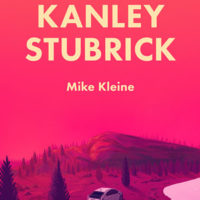
Kanley Stubrick by Mike Kleine reviewed by Justin Goodman
When you check out the latest novel by Michael Kleine, Kanley Stubrick, on Goodreads, you’ll find that an anonymous reader asked the author if “this book is going to house the Mystery of the 17 Pilot Fish play.” Kleine answered rather grandly, referring to this play set to be released at the end of August, and the rest of his oeuvre: “Kanley Stubrick and The Mystery of the Seventeen Pilot Fish are all part of the same universe, yes, but also, so is Mastodon Farm and Arafat Mountain. Everything--the characters, locales, events, situations, demises, dreams--everything is linked.” But Kleine doesn’t ...
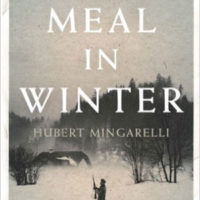
A MEAL IN WINTER by Hubert Mingarelli reviewed by Jeanne Bonner
A Meal in Winter by French author Hubert Mingarelli is a subtle book that quietly but methodically stalks the reader’s sympathies. It does so through a beautiful, spare prose style that begins with the first line: “They had rung the iron gong outside, and it was still echoing, at first for real in the courtyard, and then, for a longer time, inside our heads.” This is lovely writing (deftly rendered from the French by translator Sam Taylor, himself a novelist)—yet a bit ominous, like something that can’t be escaped. Later, setting the scene for the winter’s walk that takes up ...
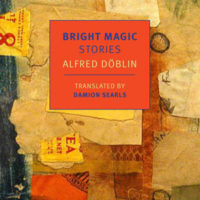
BRIGHT MAGIC: Stories by Alfred Döblin reviewed by KC Mead-Brewer
Bright Magic—a powerful concoction of black humor, harsh beauty, and dark fabulism—marks Alfred Döblin’s first collection ever to be translated into English (here by Damion Searls, a master of his craft who’s also translated the works of Proust and Rilke). Döblin (1878–1957), now a classic of German literature, was a pioneer of expressionist writing as well as a respected neurologist and army doctor. His short stories show a tremendous bravery of form and a willingness to experiment with things that today would be called flash and micro fiction as early as the 1910s. He also demonstrates a deep desire to ...
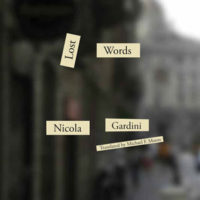
LOST WORDS, a novel by Nicola Gardini, reviewed by Claire Rudy Foster
What is experienced and what is retained can be wildly disparate; a revolution is distilled to a single detail, as Nicola Gardini reveals in the lovely novel Lost Words. Gardini explores the cultural and political revolution of 1970s Italy through the eyes of a thirteen-year-old boy. Chino—his given name is Luca—is a doorwoman's son in a working-class apartment building on the unfashionable side of Milan. “The doorwoman was not to be away from her post or distracted for a single instant,” Gardini explains. “If something required her to be away from her post, like taking out the trash, then her ...

BOILING LAKE, flash fiction by Sharon White, reviewed by Kenna O’Rourke
The short flash pieces that comprise Sharon White’s Boiling Lake read like dispatches from a dreamscape—or perhaps a nightmarescape. Surreal, dark, and unmoored from time, these journal entries are well-crafted machines that merge fairytale, myth, and history into concise forms spanning no more than a page and a half. While some of these stories build narrative bridges—recurring characters include a girl nominated for sainthood and New World explorers reporting back to higher-ups—many exist as discrete moments, indulging in provocative imagery without the expectation of elaboration. There is skill in this work that allows one to dwell in the temporary, to ...
